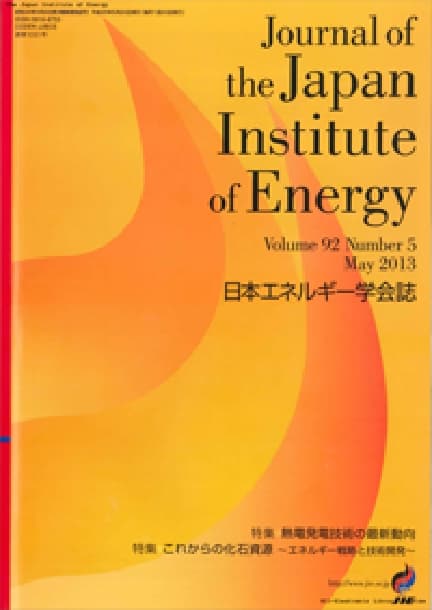パームバイオディーゼルのライフサイクル温室効果ガス排出量における土地利用転換プロセスのインパクト
白川 泰樹, 横山 伸也, 芋生 憲司
pp. 649-657
DOI:
10.3775/jie.89.649抄録
Recently, it has been reported that in the lifecycle greenhouse gas (GHG) emissions of palm oil derived biodiesel, Palm Methyl Ester (PME), direct land use change process is one of the important factors. Since most previous researches were targeted on direct land use changes from tropical rain forest to oil palm plantations in Indonesia or Malaysia, in this study, especially targeted on Thailand case, lifecycle emissions of PME including direct land use changes from rubber, tropical fruit plantations and paddy are also estimated. The lifecycle emissions are estimated at 1.01 (Degraded land), 0.64 ± 1.45 (Grassland), 7.68 (Rubber), 4.39 (Mixed orchard), -2.20 (Paddy), 12.53 ± 1.55 (Tropical rain forest), 13.08 ± 7.03 (Tropical lowland forest), 31.39 ± 2.75 (Tropical rain forest (Peat)), 23.66 ± 12.05 (Tropical lowland forest (Peat)) tCO2e/tPME. Even though these estimations are based on limited data, it is indicated that PME production including conversions from rubber, tropical fruit plantations and paddy to oil palm plantation may have less lifecycle GHG emissions than the cases of tropical rain forest conversions, and also indicated that lifecycle emissions of the cases except for conversions from degraded land, grassland and paddy are higher than that of petroleum diesel (3.25 tCO2e).
他の人はこちらも検索
日本エネルギー学会誌 Vol.89(2010), No.7
日本エネルギー学会誌 Vol.89(2010), No.7










